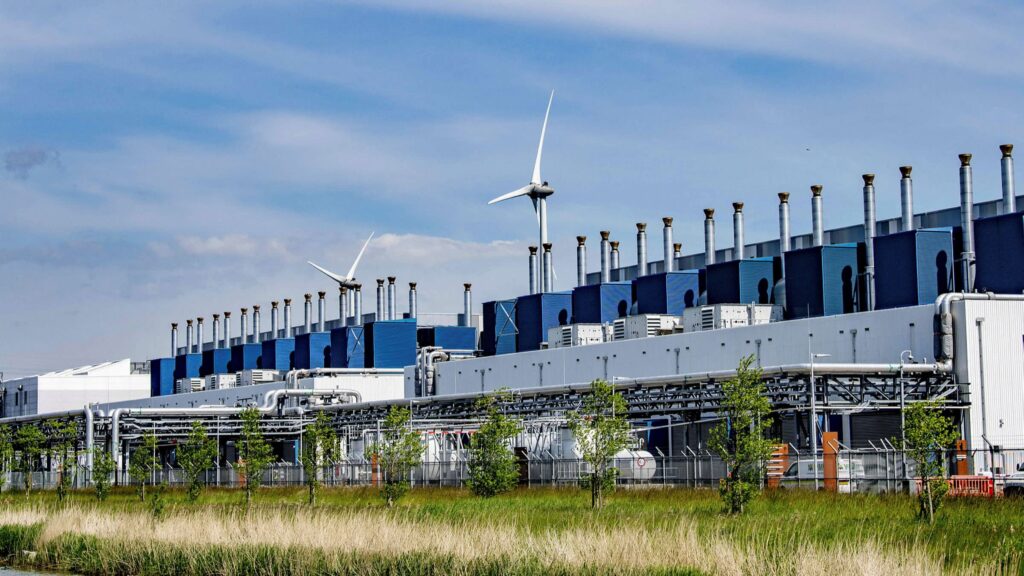Europe needs to wake up to the costs of hosting massive data centres


The writer is international policy director at Stanford University’s Cyber Policy Center
When asked about plans to develop a “hyperscale” data centre on one of the rare swaths of free land in the Netherlands, Facebook replied: “We do not respond to rumours.”
Meanwhile, the company engaged high-end engineering and law firms to advance its interests and help build the largest data centre in Europe.
Former Dutch minister for economic affairs and climate Eric Wiebes was persuaded to sign off on exceptional access to the local high-voltage network. New schools often wait for years for similar approvals.
Information about that contract only became public after freedom of information requests by journalists. The final decision to sell 166 hectares of agricultural land to Facebook was then approved by the municipal council of Zeewolde last week.
Egge Jan de Jonge, a local alderman, conceded the town was going to “play Champions League from scratch”. The question is now whether small towns like Zeewolde, which has a population of just 23,000, are any match for the big Silicon Valley companies.
In another small Dutch town, Wieringermeer, the erection of 82 windmills was initially pitched as a sustainable energy solution that would provide 370,000 households with electricity. Yet Microsoft ended up buying the bulk of the output. The company recently admitted it should not have been so secretive about its plans to build a hyperscale centre there.
In the US, Google has also been known to use shell companies, which leads to less public scrutiny. Google and Microsoft data centres in Wieringermeer alone are expected to consume an estimated 525 cubic meters of drinking water per hour, totalling 4.6m cubic meters a year.
While European leaders seek to curb the power of Big Tech, national and local governments are rolling out the red carpet. Tax breaks, and access to subsidised energy contracts and agricultural land, are facilitating the building of hyperscale data centres across Europe by Google, Facebook, Microsoft, Apple and Amazon. Significant effects on the use of energy, water and land are anticipated for decades to come.
Already, data storage and transmission, as well as crypto mining, are slurping up about 2.5 per cent of global electricity usage. A study in Denmark, home to several large data centres, predicts 15 per cent of the nation’s energy use by 2030 will be needed to power them.
Tech companies are now buying up renewable energy to reduce their carbon footprints. In 2018, for example, Facebook was the largest corporate renewable energy buyer in the world.
Gradually, though, political pushback is growing. Ireland has been welcoming technology companies for some time, but is changing course now that EirGrid expects data centres will use almost 30 per cent of Ireland’s electricity by 2028. The 30 new data centres that are being planned in the country would have to commit to working with authorities to avoid energy blackouts of the kind that are plaguing China because of outsized industrial use.
Meanwhile, in Germany’s Frankfurt region, representatives of the Green party have asked for a ruling on the feasibility of energy promises around a proposed data centre.
In practice, the usability of residual heat from data centres is often questionable. And although job creation in local communities is frequently promised as a beneficial consequence of such projects, it is not always achieved.
As demand for cloud computing, AI, streaming services, and crypto mining is growing, so is the need for data centres. Yet a healthy democratic debate about the costs and benefits of housing these facilities is impossible without transparency from companies about the process.
Instead of leaving the decision to the lowest levels of government, or allowing companies to play European, national, and local politicians off against each other, a more integrated vision is needed.
And keeping track of the sum of a series of decisions made at the local level is key. Noord-Holland, a province of 4,000 sq km, is currently home to 57 data centres. Perhaps each carefully calibrated planning application sounded compelling, but do the demands for water, electricity and land really add up?
Thus far, the so-called techlash has spared data centres, but that could soon change unless companies and governments change their behaviour.